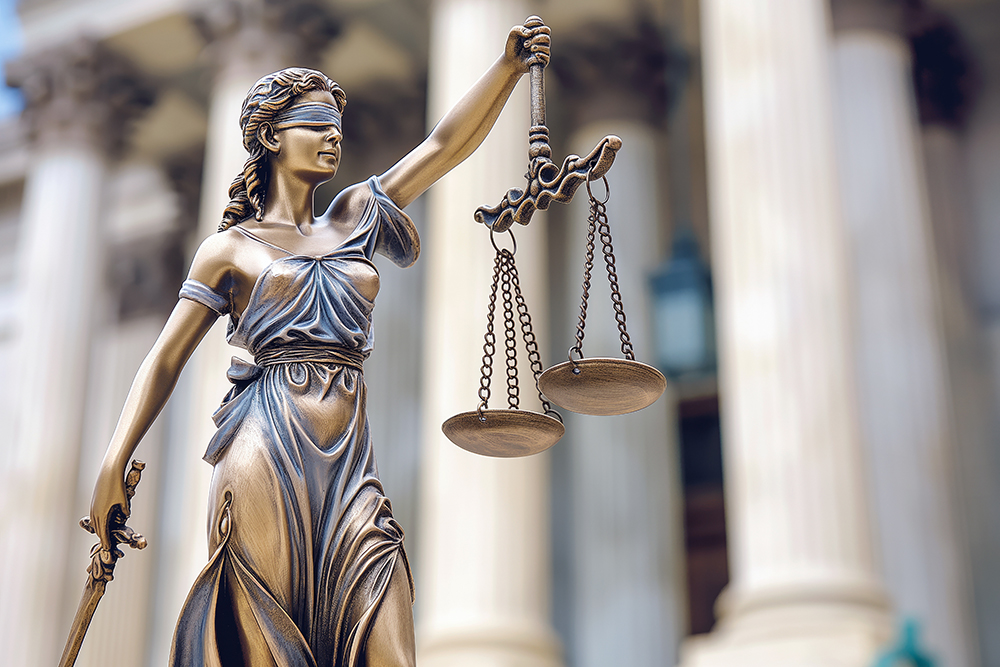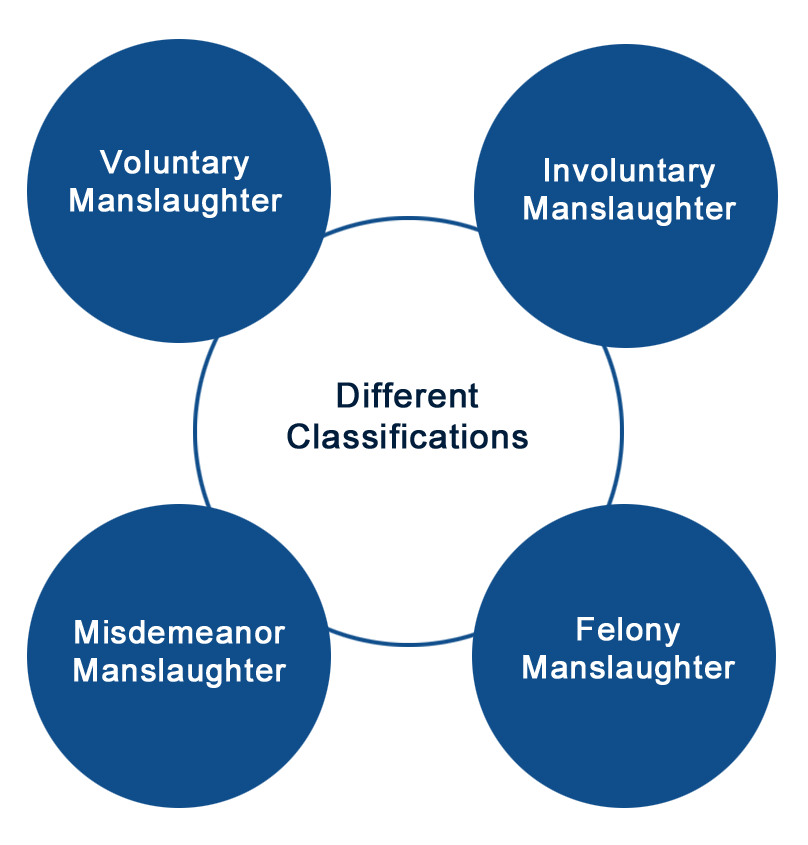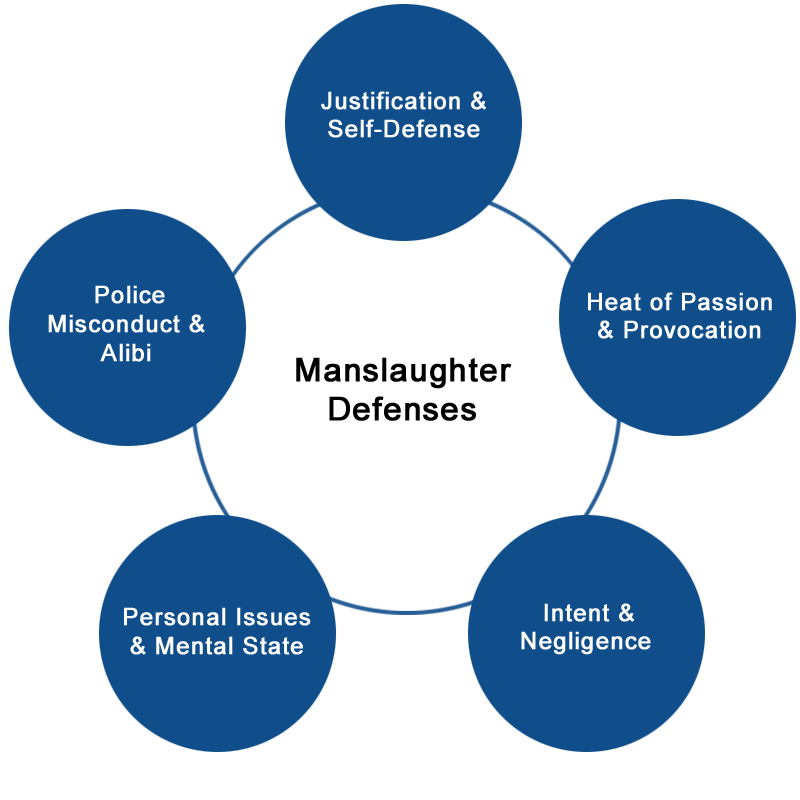
Manslaughter in Louisiana
As defined by Louisiana law in RS 14:31, manslaughter is a “homicide which would be murder under either Article 30 (first-degree murder) or Article 30.1 (second-degree murder), but the offense is committed in sudden passion or heat of blood immediately caused by provocation sufficient to deprive an average person of his self-control and cool reflection.”
The law adds the stipulation that this provocation must come immediately before the act in question, before the offender’s “blood had actually cooled.” If a jury is able to determine that enough time passed between the provocation and the defendant’s reaction, a murder charge will more likely apply. There are other circumstances that can define manslaughter as well, plus additional penalties if it was voluntary vs. involuntary or if the victim was a child less than 10 years old.
If the homicide was unintentional, or was the result of actions that weren’t intended to create harm, it could be considered manslaughter. This intent serves as the primary distinction between manslaughter and murder. For example, if the incident happens during the commission of a separate crime or while the defendant is resisting arrest. Penalties for manslaughter would then be added onto the additional charge, generally consisting of imprisonment at hard labor for upwards of 40 years. In cases where the victim is a child, a sentence is typically between 10-40 years at hard labor without the possibility of a suspended sentence or probation.
Beyond a prison sentence, there are several consequences – both direct and indirect – that stem from a manslaughter conviction in Louisiana. They include:

 Monetary Consequences: This could include court costs and fines as well as restitution payments to the victim. These payments would help the victim’s family cover funeral costs, make up for loss of income and cover any other expenses they incurred as a result of the incident.
Monetary Consequences: This could include court costs and fines as well as restitution payments to the victim. These payments would help the victim’s family cover funeral costs, make up for loss of income and cover any other expenses they incurred as a result of the incident.
Ineligibility for Parole: While parole can be possible under certain circumstances, it can often be denied. In cases where the victim is under 10 years of age, this ineligibility is made explicit: no parole, no probation, no suspended sentence. Those convicted must serve their entire sentence.
Permanent Loss of Civil Rights: A conviction for manslaughter remains a permanent part of the offender’s criminal record, resulting in a lifetime ban from voting, holding office or possessing a firearm. This permanent mark will also make it harder for them to secure housing, find a job or pursue higher education.
Enhanced Penalties for Further Crimes: If the offender is convicted of a separate crime after having served their time for manslaughter, that prior conviction could be used by the prosecution to seek greater consequences and penalties for the subsequent offense.
These are just the direct consequences those convicted will face. They may still have to face their victim’s family in a separate civil lawsuit, incurring significant financial damage if found liable. And long after their time is served, they will face strained relationships both personally and professionally, ostracism from their community and long-term mental and emotional hardships along with the disqualifying factors that come with being a convicted felon.
Different Classifications of Manslaughter Under Louisiana Law
While the primary classification between types of manslaughter are voluntary and involuntary, there are several others as outlined in Louisiana law, categorized according to several different factors.
 Voluntary Manslaughter: The classic “heat of passion” homicide, for example a husband who finds his wife in bed with another man and kills him. This is a murder that happens under conditions that mitigate the intentional killing of another, even if they don’t justify that killing.
Voluntary Manslaughter: The classic “heat of passion” homicide, for example a husband who finds his wife in bed with another man and kills him. This is a murder that happens under conditions that mitigate the intentional killing of another, even if they don’t justify that killing.
Involuntary Manslaughter: This occurs when a homicide happens due to negligence or as the result of a simple mistake. One example might be a person who chooses to drive drunk, and in their inebriated state causes a fatal car accident. In these cases, the defendant did not intend to cause harm, but did so through careless or reckless actions.
Misdemeanor Manslaughter: This is similar to involuntary manslaughter, with the key difference being that the unintended death resulted from the defendant committing a separate misdemeanor. One example would be a motorist running a red light, which is a misdemeanor, and accidentally killing a pedestrian.
Felony Manslaughter: This is similar to misdemeanor manslaughter, only occurring during the commission of a felony. For example, if a bank teller were to die of a heart attack during a bank robbery, the burglar could be charged with felony manslaughter, even if they didn’t intend to cause their death.
Defending Against Manslaughter Charges
At The Claiborne Firm, we pride ourselves on exhaustively preparing for each case, meticulously analyzing every shred of evidence that might illustrate our clients’ lack of culpability and help retain their freedom. Depending on what we find, we prepare a robust defense that could include any or several of the following strategies:
Showing Justification: This is a multi-faceted approach that aims to present our client’s actions as necessary. This could mean showing that our client reasonably believed that themselves or others were in immediate danger of harm, and acted in self-defense. It could also mean showing that our client acted to prevent greater harm, such as preventing a felony.
Heat of the Moment: The strategy aims to reduce a murder charge to a voluntary manslaughter charge by showing that the incident occurred in the heat of passion after our client was provoked.
Lack of Intent: This involves showing that our client either lacked the intent, or lacked both intent and negligence, in accidentally causing the death of another.
 Extenuating Personal Issues: Using this strategy, we point to issues our client was facing at the time of the incident that led to, or exacerbated the situation. This could range from pleading insanity, that our client was not of sound mind and didn’t understand their action, to demonstrating mental impairment or intoxication that could have led to the incident.
Extenuating Personal Issues: Using this strategy, we point to issues our client was facing at the time of the incident that led to, or exacerbated the situation. This could range from pleading insanity, that our client was not of sound mind and didn’t understand their action, to demonstrating mental impairment or intoxication that could have led to the incident.
Explaining Motive: Showing that our client believed they were acting in accordance with the law, or thought their actions were justified at the time. This could also involve proving that our client acted under duress, for example if they were under threat to themselves or others.
Providing an Alibi: One of the more straightforward strategies, this simply means demonstrating that our client was not present at the scene when the crime occurred, and thus could not have committed the act.
Questioning Police Conduct: This strategy takes on the validity of the investigation itself, positing that evidence was obtained improperly, such as through a coerced confession or an illegal search and seizure.
Reassigning Fault: This involves demonstrating that the death was caused either by the victim’s own actions or by the actions of a third party, rather than our client.
Statutory Defenses: There are several statutes under Louisiana law in which a homicide can be justified, so this strategy involves showing that our client acted in defense during a home invasion or while trying to prevent a violent felony.
Using these strategies, we aim to see your manslaughter charges dismissed, reduced or acquitted altogether.
Preparing To Win Your Manslaughter Case
All of the strategies outlined above come down to one thing: preparation. At The Claiborne Firm, we build every case on a foundation of exhaustive research, the results of thorough examinations and investigations into every aspect of your case. We acquire a more robust knowledge of your circumstances than the prosecution, and we use that knowledge to create a compelling narrative that highlights your innocence. It’s one strategy we always use, because it’s a strategy that has proven successful time and time again. If you or a loved one are being investigated for manslaughter in the state of Louisiana, submit your contact information below to schedule a free, no-obligation case review with our attorneys.
Call (504) 294-8552 or Schedule a Free Case Evaluation Online
